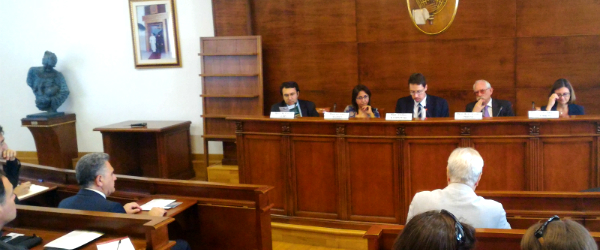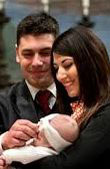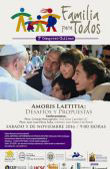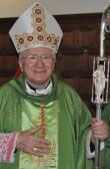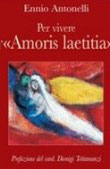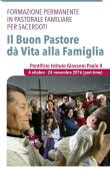What paths of dialogue and prospects exist for possible strategic alliances between Christianity and Islam in family matters? This is the question that inspired the seminar "European Islam and the Western Family: What Impact and What Synergies?", organized by the Pontifical John Paul II Institute and held in its center in Rome on September 29th. Professors and experts on the Islamic world met to discuss this topical issue.
In his introduction, Professor Stephan Kampowski, of the Pontifical Institute, first pointed out the "dangers of a culture—that of the West—, which is slowly abolishing itself. A civilization that denies marriage and the family as the natural given realities and decides not to have more children cannot last more than one or two generations. Islam—continued Professor Kampowski—, with its deep religious convictions, can then perhaps push us to find our own, for example, by going back to church and developing a new familiarity with the Bible. I think, moreover, that indifference is the greatest enemy of Christians and that, in the search for an antidote to this, it is certainly possible to learn something from our Muslim brothers."
Immediately after this lecture, Professor Bartolomeo Pirone, of the Pontifical Lateran University, explored the Islamic family culture, highlighting many points of contact, in this area, between the Mohammedan religion and our own. "First of all—said Prof. Pirone, in his lecture filled with quotations from the Koran—, we share with them, as aims of the family, marriage and procreation. Like for Christians, what gives validity to marriage (not considered a sacrament in that culture) is the religious intention. For them, then, the family is not an abstract concept, but a reality, a way of living one's history, where each of its members fully enters into play. The Koran often repeats the invitation to love one’s spouse and family tenderly, while promoting chastity, loyalty and trust."
This analysis was then taken up by Professor Amal Hazeen, of the Pontifical Urban University, who highlighted the irreconcilable differences of the two religions with respect to the family. "First of all—he said—, for Muslims, marriage is not a sacrament, but a simple civil contract. They also traditionally accept repudiation, divorce and polygamy. Marriage can be arbitrarily dissolved by the husband, and he is not required to give any explanation. Then, concerning polygamy—Prof. Hazeen emphasized—, it is clear that the procreative end has greater importance than the unitive aspect, and this creates a sharp imbalance. The conjugal relationship is marked by a disparity based on the Koran itself, where man—in contrast with what we read in the Bible—is the man placed in a higher position, a step above the woman: she, therefore, lacks many rights and freedoms that are now fully recognized in the West. Another irreconcilable difference concerns punishment and chastisement: characterized by whipping, stoning and killing. What I propose, therefore, as plausible, are circumstantial alliances with Islam, on individual issues and battles, because there are too many irreconcilable differences that make a continuous and definitive alliance on the subject of the family impossible."
Dr. Aydin Cenap, of the Istituto Tevere - Centro Pro Dialogo, focused his remarks on European Islam, which in his view is increasingly undergoing a rapid process of secularization that defuses all the fears related to the explosion of any kind of "demographic bomb": "Today, the difference in comparison with the first Muslims who arrived in Europe in the 1960s is impressive. First, men were coming to this continent to work and send money to their families in the land of origin. Then, families were divided. But today? Today, the number of broken homes is increasing, but in a different way, in a modern way. In Europe, the divorce rate among Muslims has in fact increased and is approaching that of its inhabitants. However, there is also a predisposition to having few children, one or two at the most. This represents a real change from a culture in which it was normal for a couple to have 5 or 6 children. Now, why is this happening? Because the new Muslim generations want to become doctors, lawyers, and professors, and the household budget is limited. This is in fact what is keeping couples from having several children, as in their homelands."


